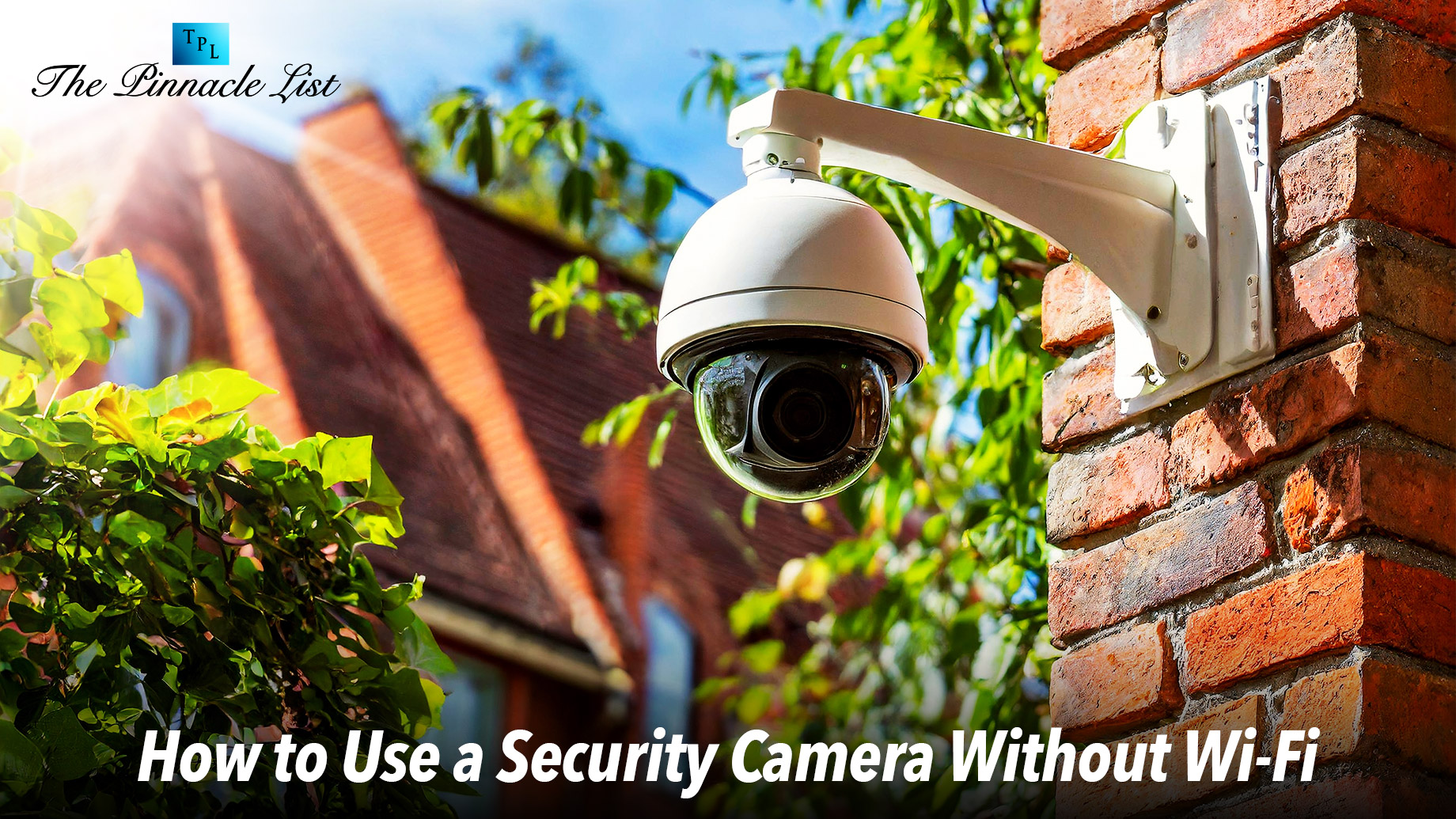
In an era where internet connectivity is ubiquitous, it may seem challenging to operate security cameras without Wi-Fi. However, several reliable options exist for securing your premises without relying on internet access. Whether you’re in a remote area with limited connectivity or simply prefer a more traditional setup, there are effective solutions available. This guide explores various types of non-Wi-Fi security cameras, detailing their advantages, disadvantages, and ideal use cases. From analog and cellular cameras to local storage options, you can find a system that meets your security needs without the need for Wi-Fi.
How to Use a Security Camera Without Wi-Fi
When it comes to ensuring the safety of your property without internet connectivity, there are several practical options to consider.
Analog Security Cameras
Analog security cameras are a traditional choice that doesn’t rely on internet connectivity. These cameras use coaxial cables to transmit video signals to a recording device, such as a DVR (Digital Video Recorder). This setup ensures continuous recording without the need for Wi-Fi. Analog cameras are often favored for their reliability and straightforward installation. They are particularly useful in areas where internet connectivity is unreliable or nonexistent.
Cellular Security Cameras
Cellular security cameras offer a modern solution for those needing an outdoor security camera system without Wi-Fi. These cameras use cellular data networks to transmit video footage. They are equipped with SIM cards, similar to mobile phones, and can operate anywhere with cellular coverage. This makes them ideal for remote locations. The primary advantage of cellular cameras is their flexibility and mobility. However, users should consider data plan costs as part of their operational expenses.
Local Storage Cameras
Local storage cameras are designed to record and store footage directly onto an internal memory card or external storage device like an SD card or hard drive. These cameras do not require internet access, making them a good option for offline monitoring. The footage can be accessed by physically retrieving the storage device and viewing it on a computer. This method ensures that your recordings are secure and not dependent on network stability.
Wi-Fi Security Cameras vs Non-Wi-Fi Security Cameras
Comparing Wi-Fi and non-Wi-Fi security cameras highlights the distinct advantages and disadvantages of each type, helping you choose the best system for your needs.
Wi-Fi Security Cameras
Advantages
- Remote Access: Wi-Fi security cameras offer ease of access, allowing them to be accessed remotely via smartphones, tablets, or computers. This capability includes live streaming, enabling real-time monitoring from anywhere with an internet connection.
- Installation: The installation process for Wi-Fi security cameras is flexible and generally easier compared to wired systems. Due to fewer wires, they can be placed anywhere within the Wi-Fi range. Many models are designed for DIY setup, making them accessible for users who prefer to handle the installation themselves.
- Features: Wi-Fi security cameras often come with smart integration capabilities, allowing them to integrate with smart home systems and voice assistants like Alexa or Google Assistant. Additionally, many of these cameras offer cloud storage options for recorded footage, providing convenient and secure access and protection against footage being physically stolen.
- Cost: There is a wide range of Wi-Fi security camera models available at different price points, making it easier to find an affordable solution that fits various budgets.
Disadvantages
- Reliability: The performance of Wi-Fi security cameras is dependent on the strength and reliability of the Wi-Fi signal, which can be a drawback. They may also suffer from potential interference from other wireless devices.
- Security: Wi-Fi security cameras are vulnerable to cyber attacks if not properly secured, posing hacking risks. There are also privacy concerns related to the potential for unauthorized access to live feeds or recorded footage.
- Bandwidth Usage: These cameras can consume significant bandwidth, which might affect the performance of other devices on the same network, leading to network load issues.
Non-Wi-Fi Security Cameras
Advantages
- Reliability: Non-Wi-Fi security cameras offer a stable and consistent feed due to their wired connections, which do not rely on Wi-Fi. They are also less prone to interference from other electronic devices, ensuring more reliable performance.
- Security: These cameras provide higher physical security as they are more difficult to hack remotely since they are not connected to the internet. This significantly lowers the risk of unauthorized remote access, enhancing privacy.
- Image Quality: Wired connections in non-Wi-Fi security cameras often result in better image quality. The stable connections and lack of need for compression for streaming contribute to consistent and high-quality video feeds.
Disadvantages
- Installation: The installation process for non-Wi-Fi security cameras is typically more complex and challenging. It usually requires professional installation due to the need for running cables, which also makes the placement of these cameras less flexible compared to wireless options.
- Accessibility: Non-Wi-Fi security cameras generally do not offer remote access unless additional network setups are implemented. They often rely on local storage solutions like DVRs, which can be less convenient to access remotely.
- Cost: These cameras can be more expensive initially due to the costs associated with wiring and professional installation. Additionally, they may require more maintenance for the physical infrastructure, which can add to the overall cost.
Conclusion
Choosing the right security camera system depends on your specific needs and circumstances. Non-Wi-Fi security cameras provide robust solutions for areas with poor internet connectivity or for those who prioritize privacy and reliability. Analog, cellular, and local storage cameras offer varied benefits tailored to different environments. On the other hand, Wi-Fi security cameras are convenient, feature-rich, and easy to install, making them ideal for users who prefer remote access and smart integration. By understanding the strengths and limitations of each type, you can make an informed decision that ensures the security and safety of your property.